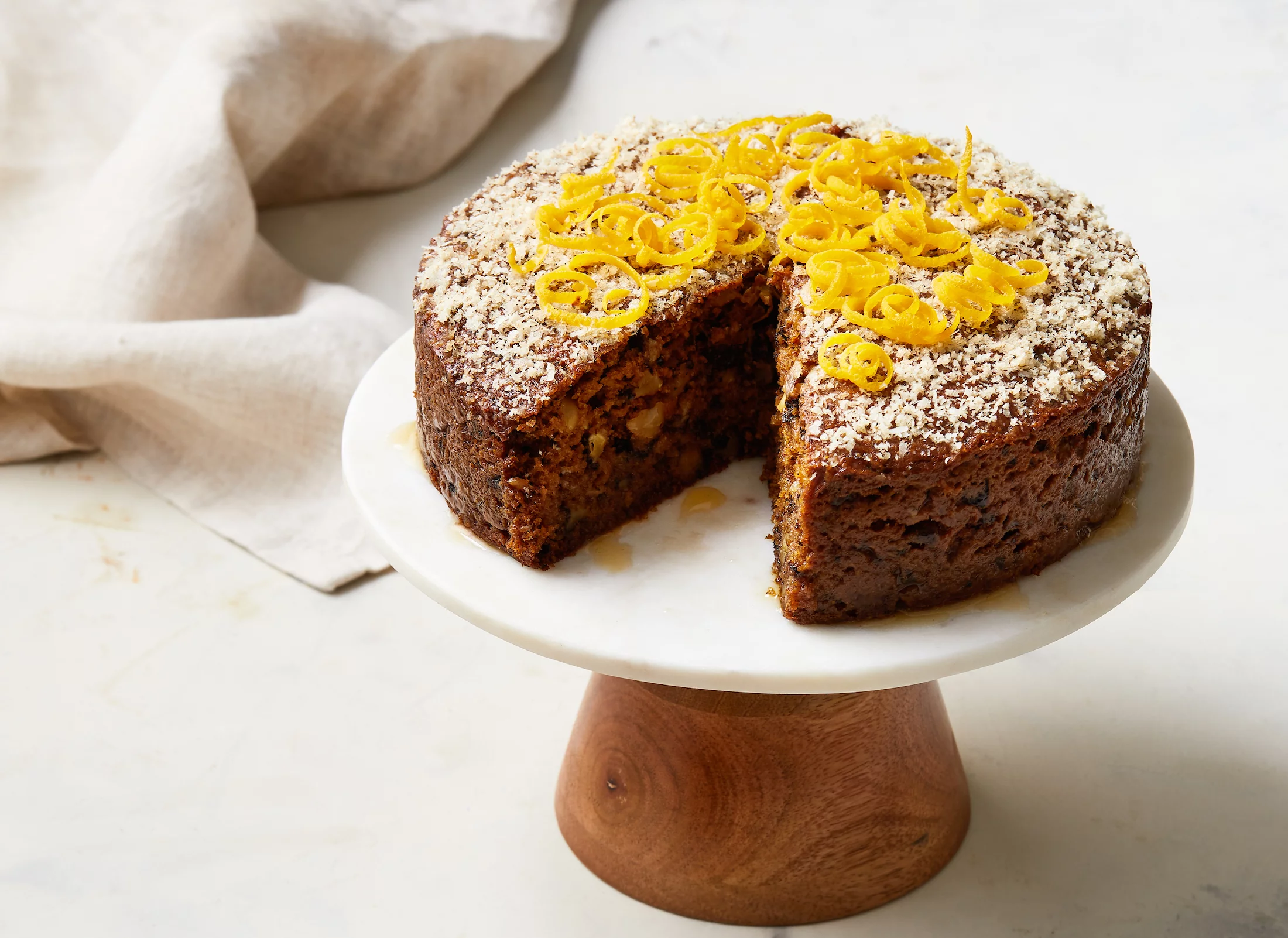Chana Dal and Carrot Soup
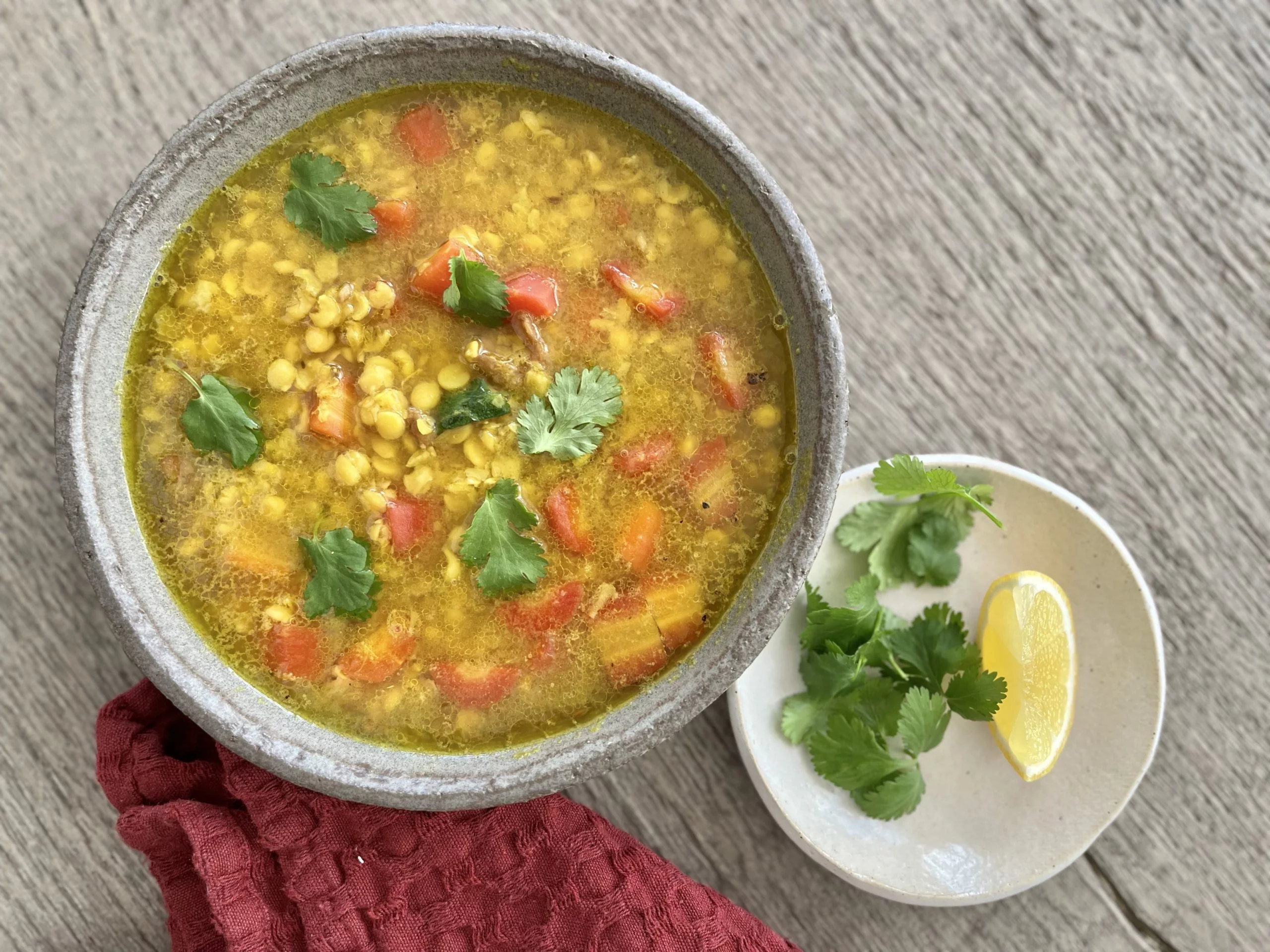

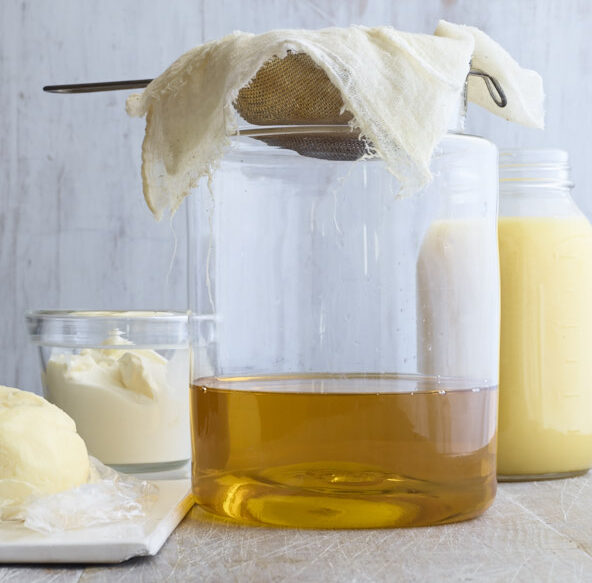

From Joy of Balance by Divya Alter (Rizzoli 2022)
I often wonder why the ancient Ayurvedic doctors hailed cultured ghee as the best cooking fat, yet today so many people don’t know about it. This superior clarified butter has probably lost its glory throughout the centuries as cheaper cooking oil alternatives have flooded the food market. Nevertheless, cultured ghee continues to be the healthiest source of edible fat for humans. It is my number one food for promoting longevity, and I cook with it every day. If you are accustomed to cooking with butter, you will not be disappointed by cultured ghee because it will deliver the same enticing buttery flavor, but it will feel much lighter in your body.
Ghee is an exceptional carrier, taking herbs and fat-soluble vitamins (A, D, E, and K) to their desired cellular targets in the body. The ancient doctors recognized its bioavailability and used it in thousands of Ayurvedic herbal formulations.
Modern studies confirm that cultured ghee is the food with the highest source of butyric acid, the component that nourishes the gut microbiome, wards off bad bacteria, seals leaky gut, and boosts natural stem cell production. Cultured ghee from grass-fed cows is also very rich in conjugated linoleic acid (CLA), which helps reduce body fat. Yes, cultured ghee can help you lose weight! Even though it is a saturated fat, it does not raise bad cholesterol levels. Moreover, cultured ghee has shown to slow down aging and cellular degeneration.
Cultured ghee is a multistep process: first heavy cream is cultured and fermented into a thick yogurt, then it is churned into butter, and finally it is cooked into ghee (see recipe in What to Eat for How You Feel). This cultured form of ghee has superior attributes and healing proper- ties compared to uncultured ghee, which is the predominant type on the market today. Cultured ghee is lighter to digest and does not build unnecessary fat tissue. Below I present the properties of cultured ghee.
SANSKRIT NAME • Ghrita
AYURVEDIC ATTRIBUTES
Taste • sweet
Qualities • heavy, oily
Metabolic Effect • cooling
Post-digestive Effect • sweet
Dosha Effect • balances all three doshas, although Kapha needs less of it
Healing Benefits •restores vitality, enhances vision, kindles agni, lubricates the channels in the body, prolongs life, nourishes the brain, supports healthy hormone production and more
SOURCING
• Not only does your health benefit most from making your own ghee, it is also more economical. In the US, you can find several brands of cultured ghee including my own brand, Divya’s. We make cultured ghee following the traditional Ayurvedic recipe and I stand by its high quality. However, I encourage you to try multiple brands and see which one you like the most. Making cultured ghee is a lengthy process; that’s why it is more expensive than conventional ghee which is derived from sweet butter (skipping the cream-culturing process).
• The best quality ghee is made from organic cream that comes from happy grass-fed A2 cows. As a saturated fat, ghee solidifies at temperatures below 90°F. The healthy color of hardened ghee is a light to rich yellow and, when melted, the ghee should look like liquid gold. Discard ghee of whitish color, which is a sign that it has gone rancid.
• Ghee is a precious substance with a long shelf life. Protect it by keeping it in a dark and dry place (do not refrigerate it), and always use a dry spoon to scoop it out of the jar. Even a drop of liquid can spoil the ghee.
SEASON
• Ghee can be used throughout the year. Increase consumption in the fall and winter to counteract the dryness in the environment—it will moisturize your body on the inside. Use less of it in the spring and summer.
DIGESTABLITY
• Cultured ghee kindles agni, so it is a digestive by itself, but it still remains a fat that the body needs to break down. Solid ghee is clogging and bile-thickening; therefore, food with ghee should be eaten warm.
COOKING TIPS
• Ghee has a high smoke point of 485°F and is suitable for all methods of cooking, including pan frying and roasting.
• Always heat ghee over low to medium heat and be watchful to protect it from smoking or burning (if that happens, discard it and start again).
• Do not reuse ghee that is left over after cooking it in any way.
• You can use ghee instead of butter in all recipes. The slight exception is with pie dough—ghee will work but the pie crust will be less flaky.
COOK WITH GHEE WHEN YOU WANT TO:
• feel grounded and satiated
• calm your nervous system
• increase physical and mental stamina
• enhance the complexion and glow of your skin
• slow down aging
• improve your memory and learning ability
CONTRAINDICATIONS
Do NOT consume ghee if:
• you have chronic liver or kidney disease
• you are experiencing an alcohol hangover
• you have a sciatica pain attack
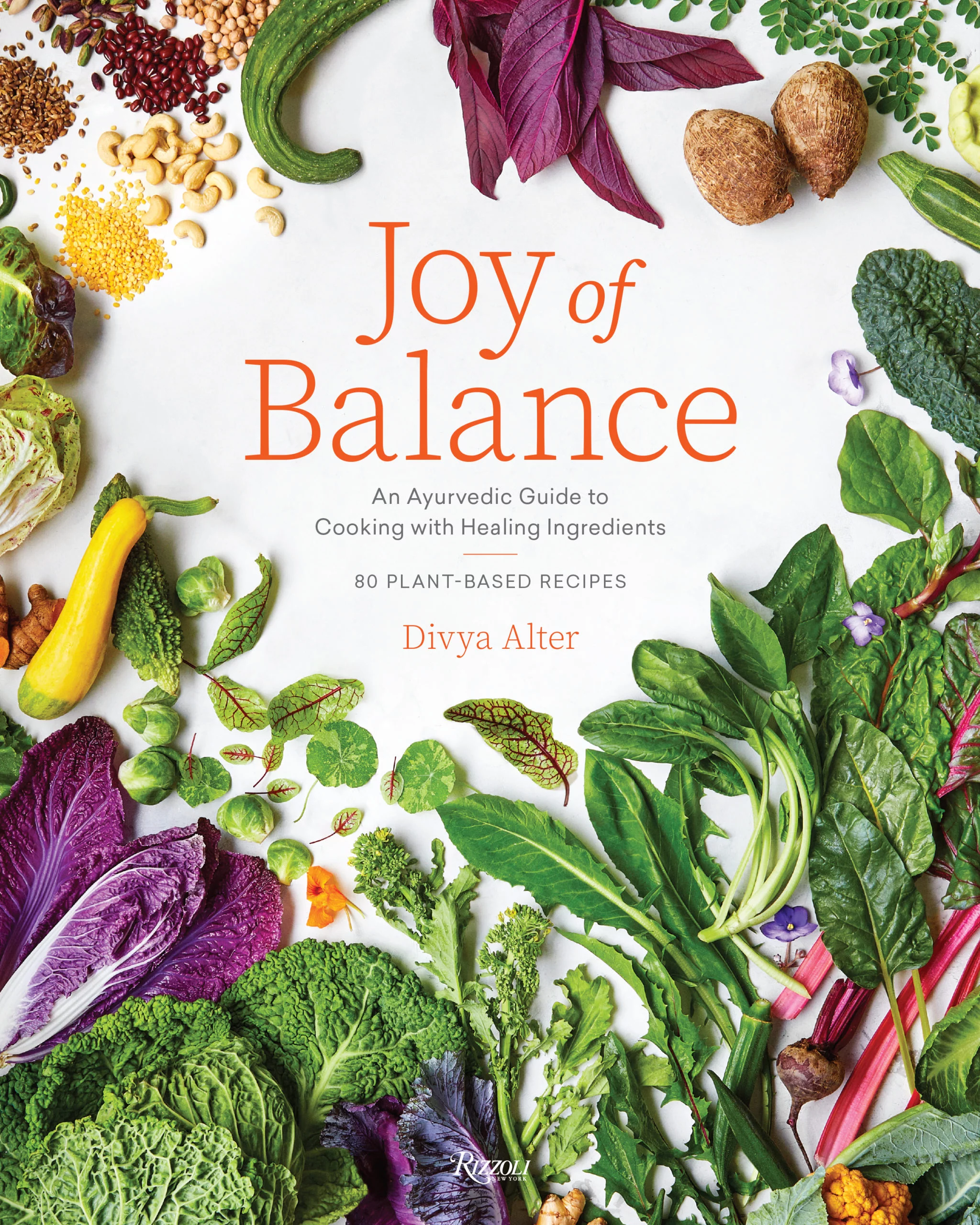
If Divya had to choose one staple she couldn’t go without, it would be ghee. In this article she explains its properties and healing benefits, as well as tips for sourcing the highest quality ghee.
$39.95–
Add to cart
Order Divya’s new cookbook now.

If Divya had to choose one staple she couldn’t go without, it would be ghee. In this article she explains its properties and healing benefits, as well as tips for sourcing the highest quality ghee.
$39.95–
Add to cart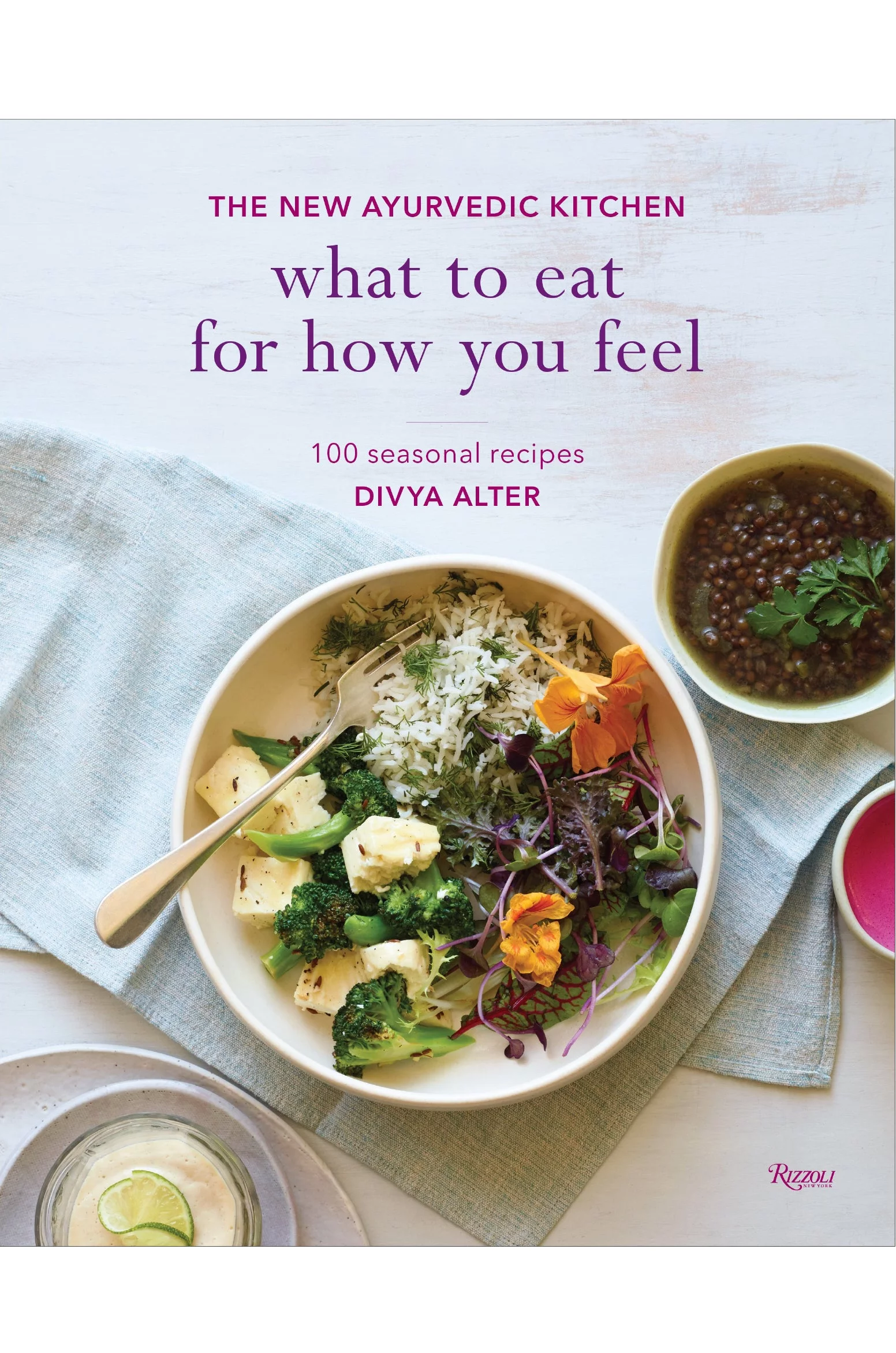
If Divya had to choose one staple she couldn’t go without, it would be ghee. In this article she explains its properties and healing benefits, as well as tips for sourcing the highest quality ghee.
$39.95–
Add to cart
Learn the essential concepts and techniques of Ayurvedic cooking. Featuring 100 seasonal recipes.

If Divya had to choose one staple she couldn’t go without, it would be ghee. In this article she explains its properties and healing benefits, as well as tips for sourcing the highest quality ghee.
$39.95–
Add to cart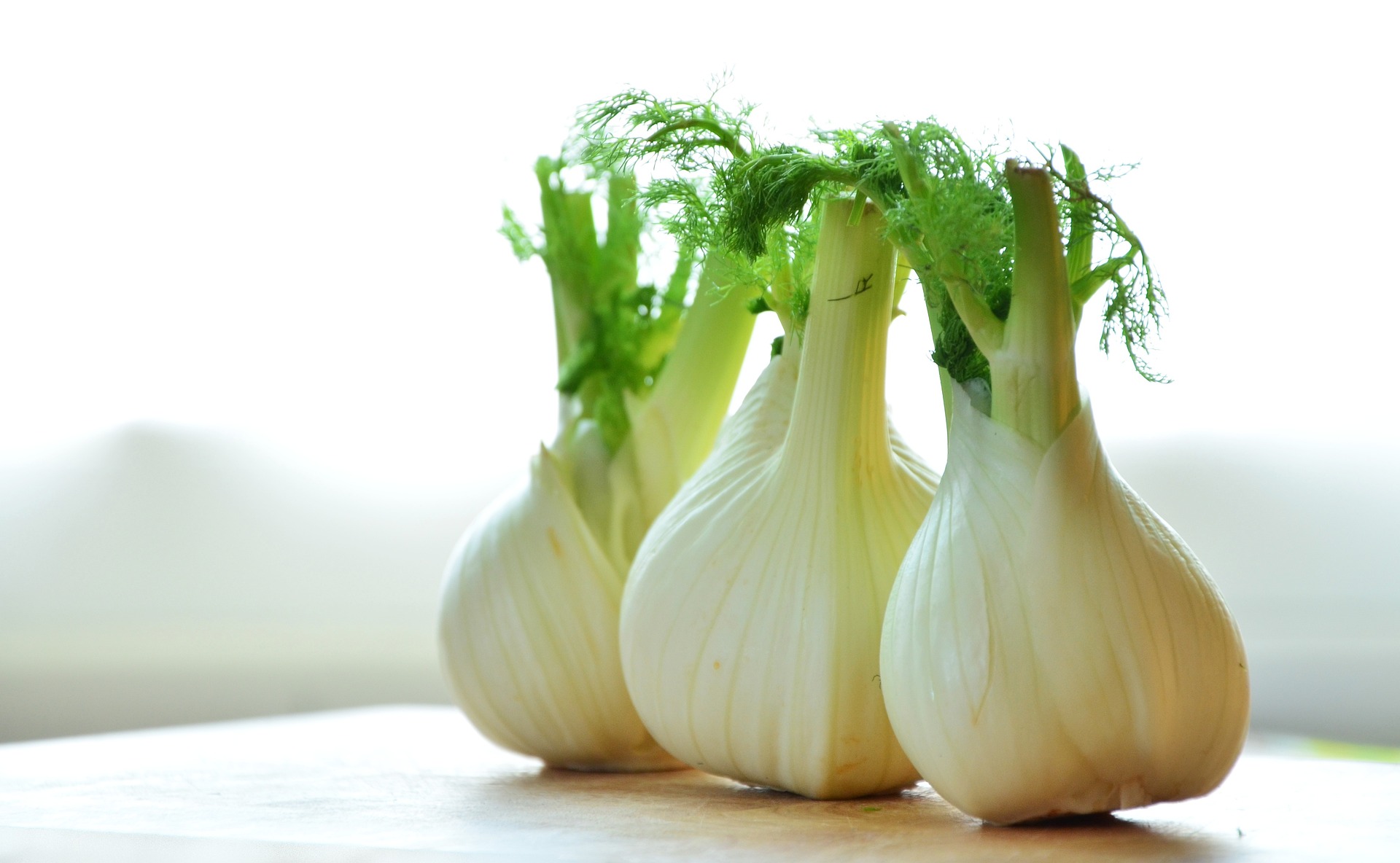

From Joy of Balance by Divya Alter (Rizzoli 2022)
Fennel is one of my favorite vegetables not only because of its versatility of cooking and flavor but also because of the soothing and calming feelings I get after I eat it.
BOTANICAL NAME • Foeniculum vulgare Gaertn.
SANSKRIT NAME • Shatapushpa
AYURVEDIC ATTRIBUTES
Taste • sweet, slightly pungent
Qualities • light, oily, slightly heating
Metabolic Effect • cooling (in small amounts), heating (in large amounts)
Post-digestive Effect • sweet
Dosha Effect • tridoshic, relieves excess Vata and Pitta in the GI tract, removes excess Kapha in the form of bronchial congestion, in large amounts the seeds aggravate Pitta
Healing Benefits • tonifies the brain, eyes, bladder, kidneys, heart, liver and spleen; soothes the stomach by relieving flatulence, bloating and abdominal discomfort; helps to kindle digestive fire without aggravating Pitta; acts as a mild diuretic and removes semi-digested food residue from the body; increases breast milk and stimulates the menstrual period; nourishes the plasma, blood, muscle, nerve and bone marrow
SOURCING
• Every part of the fennel plant can be used in cooking: the bulb, stalks, umbrella-like flowers and seeds. Select small- to medium-size, unblemished bulbs that feel crisp and firm (some grocery stores label fennel bulbs as “anise,” but the anise plant is a different species). Look for fennel seeds that are of vibrant green color.
SEASON
• Fennel is good to eat all year round. The peak season for the fennel bulb in subtropical areas is the fall through the spring. In colder climates, it thrives in the summer.
DIGESTABLITY
• Fennel in every form is easy to break down and enhances digestion. As a vegetable, you can use fennel as frequently as you want, especially when you need to settle a bloated stomach or reduce congestion. Cooked fennel is easier on the intestines but, if you have a strong appetite, you could add some shaved raw bulb to a salad. I add fennel seeds as a cooling agent to balance pungent spices such as green chiles, turmeric and ajwain.
COOKING TIPS
• Add shaved raw or steamed fennel to a summer salad.
• Braise whole fennel bulbs in the oven.
• Add the chopped bulb to vegetable or lentil soups, stir-fries and sautéed leafy greens.
• Sauté chopped fennel with a tiny pinch of asafoetida to resemble the texture and flavor of cooked or caramelized onions.
• Add fennel seeds to breads.
• Chew (and swallow) 1⁄2 teaspoon toasted fennel seeds after meals to serve as a digestive aid.
EAT FENNEL WHEN YOU NEED TO:
• counteract acidity or heartburn
• reduce lung congestion,
• eliminate bloating or gas
• soothe or cool your stomach, GI tract or mind
• increase breast milk
• alleviate morning sickness
• increase a scant menstrual flow
CONTRAINDICATIONS
Fennel in any form is a high estrogen food—avoid it when you need to lower your estrogen levels or if you’re pregnant.

Delicous, soothing and easy to digest—there’s a lot to love about fennel. In this article, Divya explains the healing benefits of fennel, how to cooking with it, when to avoid it and much more.
$39.95–
Add to cart
Order Divya’s new cookbook now.

Delicous, soothing and easy to digest—there’s a lot to love about fennel. In this article, Divya explains the healing benefits of fennel, how to cooking with it, when to avoid it and much more.
$39.95–
Add to cart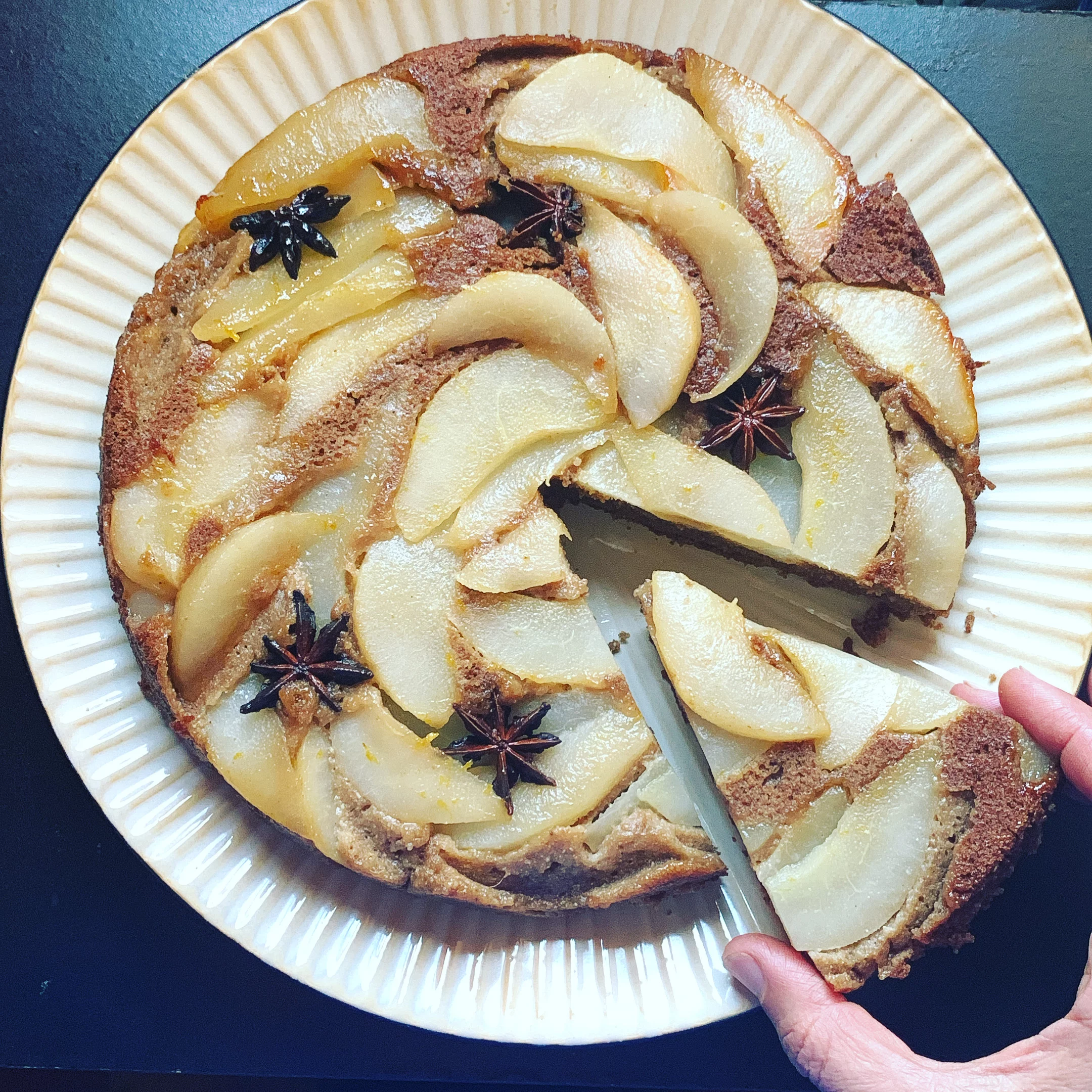
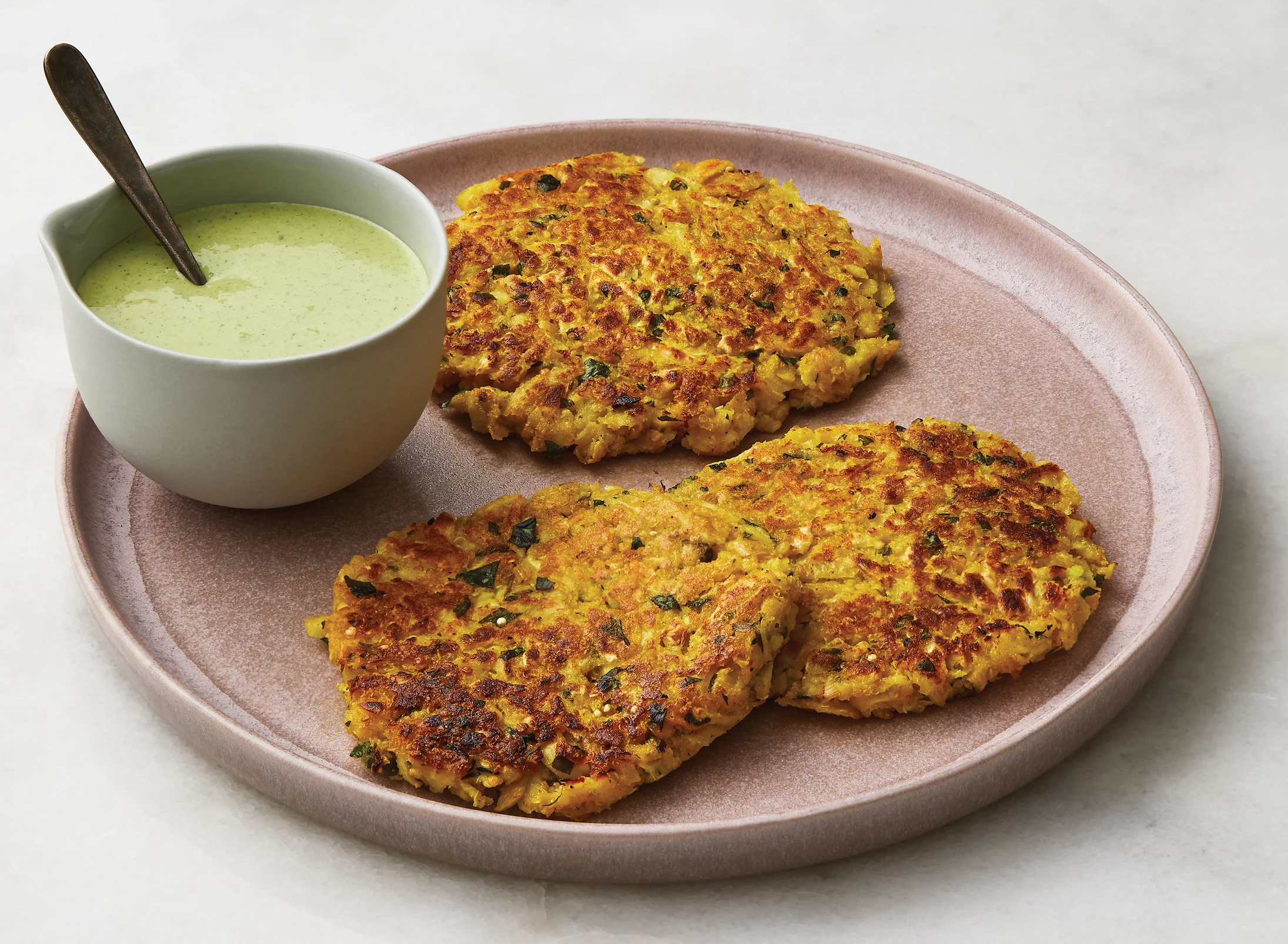
Potato pancakes are present in practi- cally every European cuisine, including Bulgarian. Growing up, I remember my dad making patatnik with grated pota- toes and feta cheese—it was so yummy! You might have memories of Jewish latkes, Irish boxty, or Czech brambor- aky. This is my potato-free version of the popular pancakes, inspired by a similar recipe in Miriam Kasin Hospodar’s Heaven’s Banquet.
These pancakes are beautifully browned and so delicious. Sweet and savory, with a subtle nutty tone of the roots’ earthiness—I would enjoy them anytime, but they feel especially bal- ancing in the cold weather. The taro not only enhances the taste but also replaces an egg’s binding effect.
Much more nutritious and flavorful than their potato cousins, Celery Root and Taro Pancakes draw attention and win praise every time we serve them at our cooking classes and events. Cashew Sour Cream (page 186), Green Tahini Sauce (page 219), Basil-Parsley Pesto (page 217), or Ayurvedic “Ketchup” (page 173) are sauce ideas to accom- pany these pancakes.
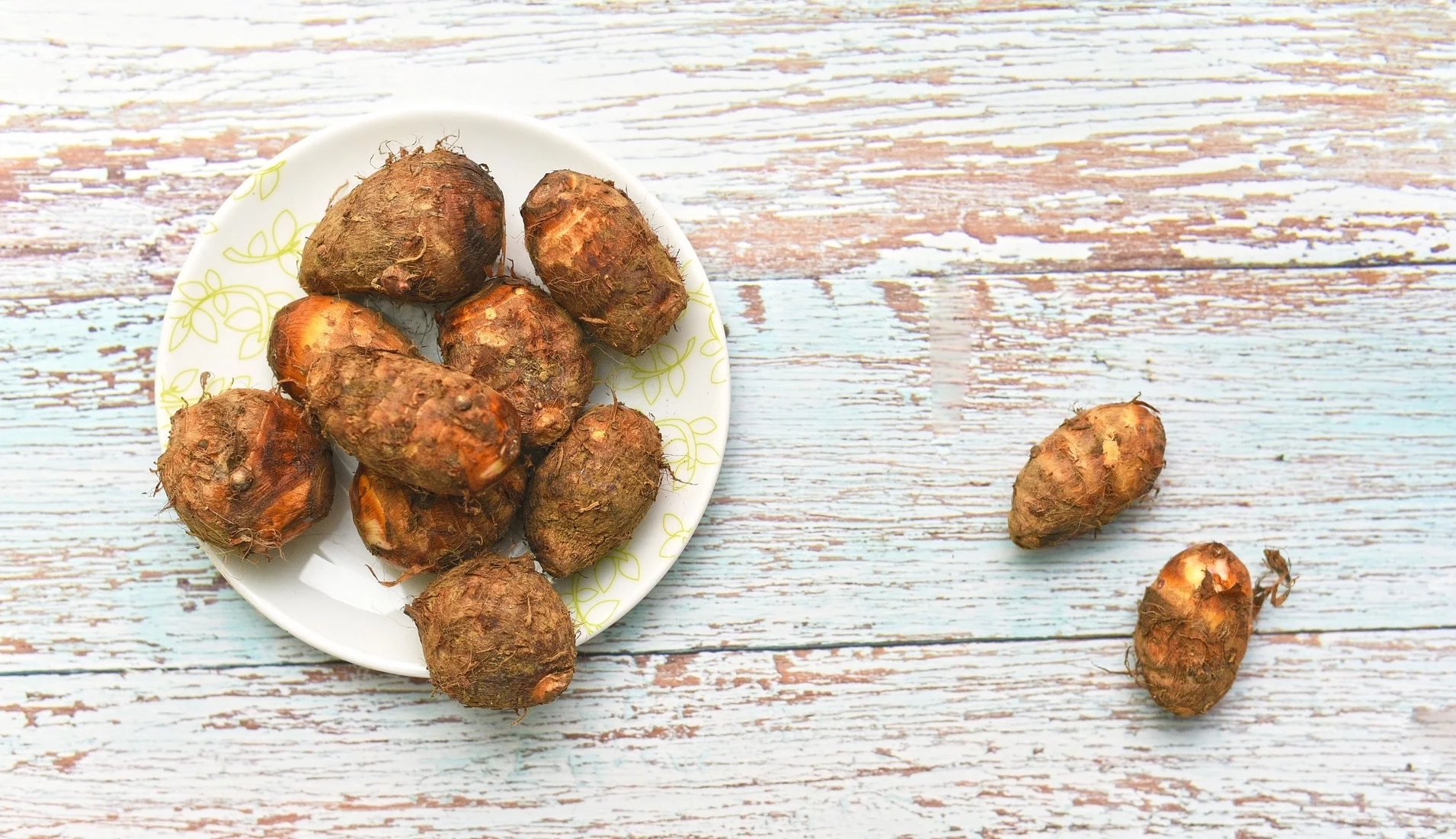

Taro is one of the earliest cultivated tubers on earth. It is prominent in the culinary cultures of the Pacific, but it also grows in the north. In the landscaping of New York City, taro serves as a decorative plant because of its beautiful philodendron-like greenery.
I first tasted taro in Vrindavan, India, where it is known as arbi. On the spiritual holiday of Radhashtami, every household in town would make a taro preparation and take it to a temple.
Taro is called “potato of the tropics,” but it is not a nightshade vegetable; that’s why I use it as a potato substitute. When swapping taro for potato, keep in mind that taro is a little pastier and stickier in texture. Taro surpasses potato in taste, nutrition, and medicinal benefits, and it is highly valued in Shaka Vansiya Ayurveda as a prebiotic. With its slippery nature, taro serves as a binder of toxins. In the words of Dr. Marianne Teitelbaum, taro is the “packaging and shipping” of toxins—it binds them together and drives them out of the body, making it an important ingredient in detox.
BOTANICAL NAME • Colocasia esculenta
SANSKRIT NAME • Alooki
AYURVEDIC ATTRIBUTES
Taste • sweet
Qualities • heavy to digest, gooey, sticky
Metabolic Effect • cooling (some varieties are warming)
Post-digestive Effect • sweet
Dosha Effect • reduces Vata and Pitta, increases Kapha
Healing Benefits • relieves inflammation in the lungs, heals the lining of the small and large intestines
SOURCING
• Depending on where in the world you live, you will find taro at a farmers market or at an Indian or Asian grocery store. It might be listed as one of its international names: albi, arwi, dasheen, or eddo. If you can’t find taro, look for one of its close cousins: yautia, malanga, nagaimo or even yucca.
• There are two main types of taro: a very large one (common in Hawaii) and a smaller, potato-size one with a brown and hairy skin. I use the small ones because they are easier to digest.
SEASON
• Celery root is seasonal in the fall, winter, and early spring.
DIGESTABLITY
• Always peel and cook taro root to minimize the calcium oxalate content found in its skin.
• Vaidya Mishra recommended that we eat taro at least twice a week (daily is also fine) to benefit from its binding properties. To make taro more Kapha balancing, add black pepper, chile or ginger to the recipe.
COOKING TIPS
• Before washing taro root, peel, slice off any brown spots, and chop it—water makes the vegetable slippery and harder to cut.
• Cook taro until it is completely done and tender. A crunchy, half-cooked taro will produce ama.
• Mashed taro is a delicious substitute for mashed potatoes.
• These cooking methods work well with taro: stewing, roasting, braising, steaming, boiling.
USE TARO ROOT WHEN YOU NEED TO:
• reduce symptoms of rheumatoid arthritis
• lower high blood pressure
• lose weight,
• ease body cramps
• thicken your hair
• prevent bone loss
• stimulate circulation
• improve your gut microbiome
• detox

A healthier, more balancing alternative to potato pancakes. Although they’re great any time of year, Divya prefers them in the colder months.
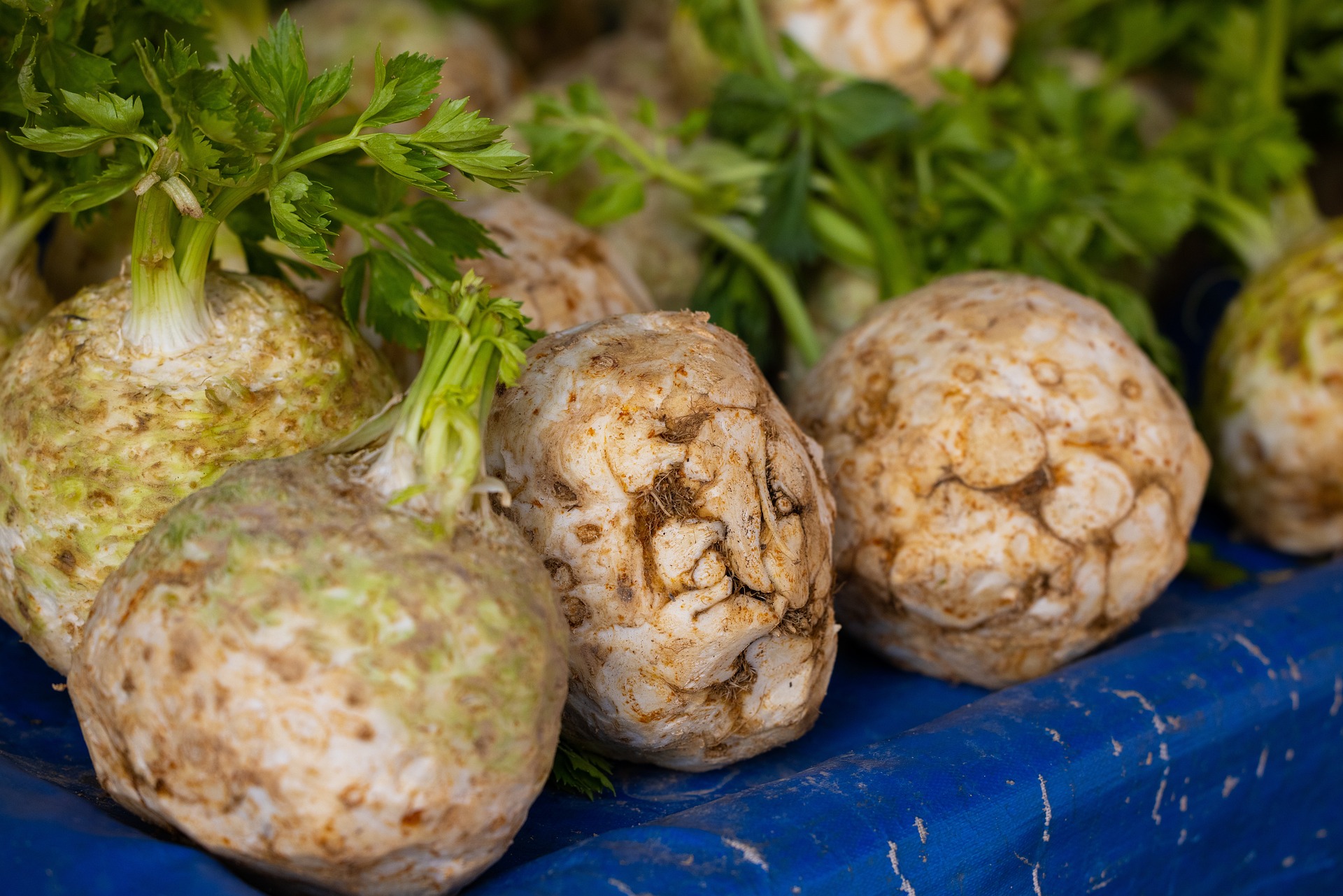
An unsung hero among root vegetables, celery root is revered by Ayurveda for its healing properties, metabolic effect and complex, earthy flavor.


Celery root is a bit messy to work with. It’s worth the effort, though, as this cold weather vegetable nourishes us with potassium and phosphorus and helps us clear ama.
BOTANICAL NAME • Apium graveolens
SANSKRIT NAME • unknown
AYURVEDIC ATTRIBUTES
Taste • sweet, slightly bitter and sour
Qualities • heavy, rough
Metabolic Effect • cooling
Post-digestive Effect • sweet or sour
Dosha Effect • balances all three doshas
Healing Benefits • supports the lymphatic, nervous, digestive and urinary systems
SOURCING
• Buy celery root (ideally with its stems and leaves attached) from the farmers market or grocery store. Select small and firm knobs. Before refrigerating, cut off the roots from the stems and store them separately.
SEASON
• Celery root is seasonal in the fall, winter, and early spring.
DIGESTABLITY
• A crunchy celery root can increase Vata and bloating; that’s why I recommend cooking it until soft but not mushy.
• Good digestive and flavor seasonings include caraway seeds, fennel seeds, lime juice, parsley, thyme, and nutmeg.
COOKING TIPS
• The messy part of working with celeriac is its knobbiness and dirt-filled crevices. I handle this by peeling the root with a knife.
• Use a small amount of the slightly bitter celery root stems and greens in soups and stews.
• You can stew, sauté, stir-fry, puree, braise, marinate or roast celery root.
USE CELERY ROOT WHEN YOU NEED TO:
• lower blood pressure
• reduce inflammation
• lose weight
• relieve indigestion
• eliminate kidney stones

A healthier, more balancing alternative to potato pancakes. Although they’re great any time of year, Divya prefers them in the colder months.

Taro root serves a number of essential functions in Ayurvedic cooking. Not only is it a potato substitute and egg replacer, it’s also highly medicinal and detoxifying.
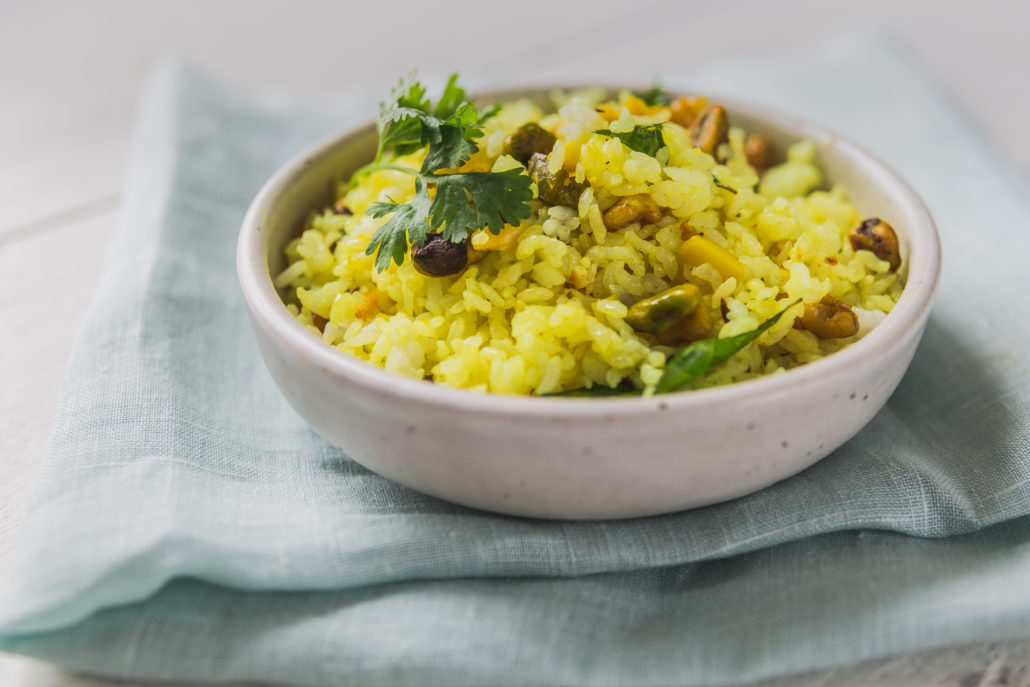


Adapted from Joy of Balance by Divya Alter (Rizzoli, 2022)
According to Ayurveda, everything on earth is made up of five elemental energies or states of matter (commonly known as the five elements):
Earth: The state of solidity and stability
Water: The state of fluidity, moisture and flow
Fire: The state of heat and transformation; that which engulfs whatever it comes into contact with
Air: The state of mobility and movement
Ether: The space or the field that contains the above four elements
These five states of matter express themselves in the human body as the three doshas: Vata, Pitta and Kapha.
Vata: Ether and Air
Pitta: Fire and Water
Kapha: Water and Earth
The doshas are universal energies that come into contact with the body. They are the functions at play in human physiology. Because the body constantly fluctuates, each dosha fluctuates. Anytime we do something in excess, the doshas become aggravated and the body is subjected to pathology or disease.
Vata dosha is the harmonious union of ether and air, and it takes on the qualities of these two elements in the body: dry, light, cold, rough, subtle and mobile. Vata is the circulatory energy that governs the body- mind functions of movement, the nervous system, speech, breathing, elimination, sense of touch, creativity and our innate healing intelligence; it also coordinates the movements of Pitta and Kapha.
Pitta dosha is the body’s expression of the fire element protected by a smaller amount of fluidity (water element) and takes on their qualities: slightly oily (think of gasoline), penetrating, hot, light, slightly foul smelling and spreading easily. Pitta is the “cooking energy” that governs transformation (all chemical and metabolic functions), digestion, body warmth, visual and mental perception, appetite and thirst; it powers the intellect, luster, complexion and courage.
Kapha dosha is the combination of the elements water and earth. When you mix them together, they turn into mud, and the Kapha qualities are very similar to those of mud: oily, cool, heavy, slow moving, moist and stable. Kapha is the cohesive “glue energy” that provides structure, support and static stability and makes up the bulk of bodily tissues. It maintains the functions of growth and provides nourishment and lubrication to the organs, tissues, joints and mucus membranes; it gives physical endurance and strength to the heart, lungs, brain and other organs.
Vata activates when there is a need for something to move.
Pitta activates when there is a need for something to transform.
Kapha activates when there is a need for something to grow, lubricate or be “cushioned” with protection.
All three doshas are present in everyone, but they express themselves in a unique way in each one of us. The distinctive combination of the doshas at our time of birth defines our constitution or natural disposition (prakriti). Most people have a predominance of one or two doshas, and some people have an equal amount of the three (tridoshic).
The dominant dosha(s) will be reflected in your self-expression: in the way you look, think and operate in life. And that dominant dosha is usually the first one to go out of its optimal state when you’re under stress.
The body is the landscape where the doshas interact to create either vitality or disease. You experience vitality when you are closest to your unique constitution and disease when you are furthest from it, a sign that your doshas are functioning abnormally.
The doshas are bioenergies—we can’t measure them with modern scientific tools. However, we can perceive them, just like we can perceive the mind’s movements. And like all energy, the three doshas constantly fluctuate and “dance”—they are never static. Vata goes high when we’re exercising, Pitta goes high when we’re hungry, Kapha goes high when we’re sleeping. However, in a healthy person, the heightened doshas become alleviated very quickly. In a diseased person, they accumulate, aggravate and then displace themselves—this is when we begin to feel unwell.
It Is important to understand what your constitution, or metabolic type, is because it is your original blueprint for perfect health, and it guides you to proactively and continually maintain a healthy lifestyle.
It is even more important to know how stress causes your current dosha dysfunction, the cause of your illness or your feeling of being unwell. That dysfunction is what you need to correct to bring yourself back to your perfect health. Like it or not, for as long as you have a body and mind, you’ve got to deal with your doshas!
I love the concept of the doshas because it explains why we’re all different and why we all have different needs. Knowing my constitution helps me align with my unique nature, better understand myself and my tendencies and find my reference point for perfect health. This Ayurvedic concept also enables me to do the same with others, thus allowing me to feel more compassion. It reduces my judgmental habit of comparing myself to others and thinking that others should be like me. Now it is easier for me to discern when someone’s self-expression stems from harmony as a call of love, or from imbalance as a cry for love, and from there, I look for a kind way to connect with that person.
You can use the concept of the doshas to learn so much about yourself: how your organism operates; identify its strengths and weaknesses; build true vitality for your own unique body; and provide real contentment for your own unique mind. Thus, you will lay a healthy terrain for accelerating your spiritual growth, which is the ultimate purpose of Ayurveda.
Want to know the fastest way to manage your doshas? Choose the right foods.
And in my digital masterclasses, you’ll learn how to do exactly that. Featuring over 8 hours of guided video content along with interactive workbooks, these courses will teach you:
Click here to learn more about the masterclasses.
Looking for even more guidance? In my newest cookbook, Joy of Balance, I explain the effect that each featured ingredient or recipe has on the doshas. You can also refer to my first cookbook, What to Eat for How You Feel, where I elaborate on how the three doshas express themselves in their balanced or imbalanced states—an invaluable tool if you’re feeling out of balance but you’re not sure which dosha is involved.

In this article, Divya demystifies the Ayurvedic concept of doshas. She explains that doshas help us understand our unique constitution, our present health imbalances and the foods we need to restore balance.
$39.95–
Add to cart
Order Divya’s new cookbook now.

In this article, Divya demystifies the Ayurvedic concept of doshas. She explains that doshas help us understand our unique constitution, our present health imbalances and the foods we need to restore balance.
$39.95–
Add to cart
In this article, Divya demystifies the Ayurvedic concept of doshas. She explains that doshas help us understand our unique constitution, our present health imbalances and the foods we need to restore balance.
$39.95–
Add to cart
Learn the essential concepts and techniques of Ayurvedic cooking. Featuring 100 seasonal recipes.

In this article, Divya demystifies the Ayurvedic concept of doshas. She explains that doshas help us understand our unique constitution, our present health imbalances and the foods we need to restore balance.
$39.95–
Add to cart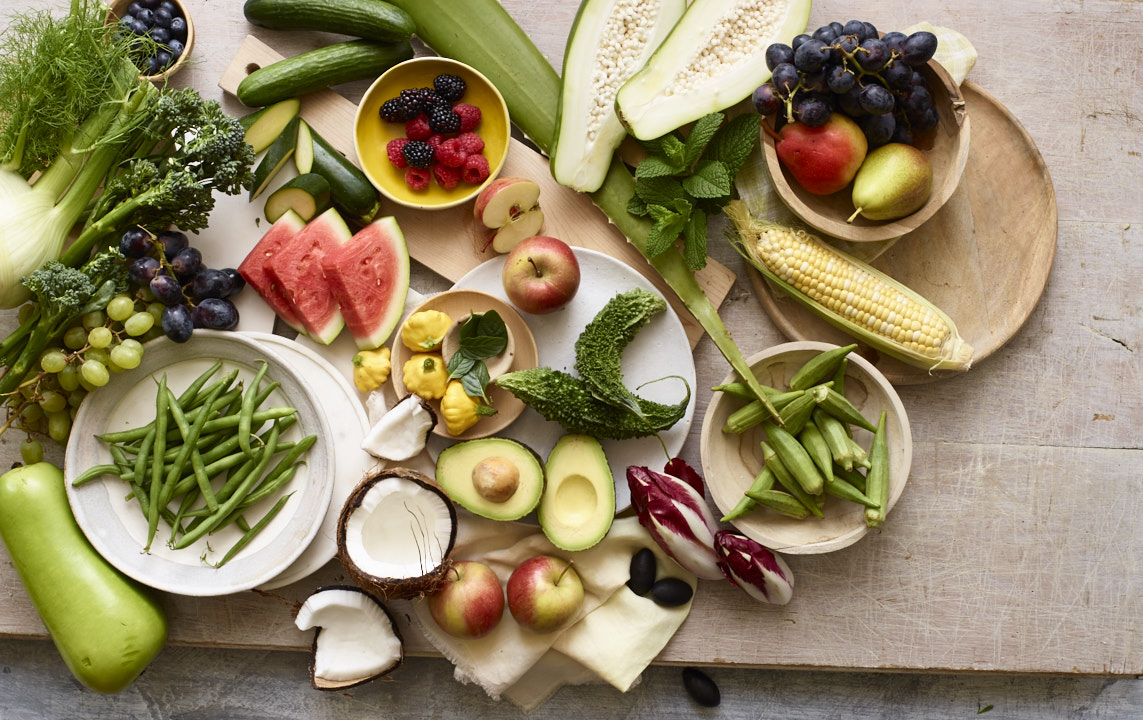
Here at Divya’s, we’re often asked about Ayurveda’s perspective on raw foods. In this article, we talk about the pros and cons of eating raw dishes and snacks, how to enjoy them safely and when to avoid them altogether.
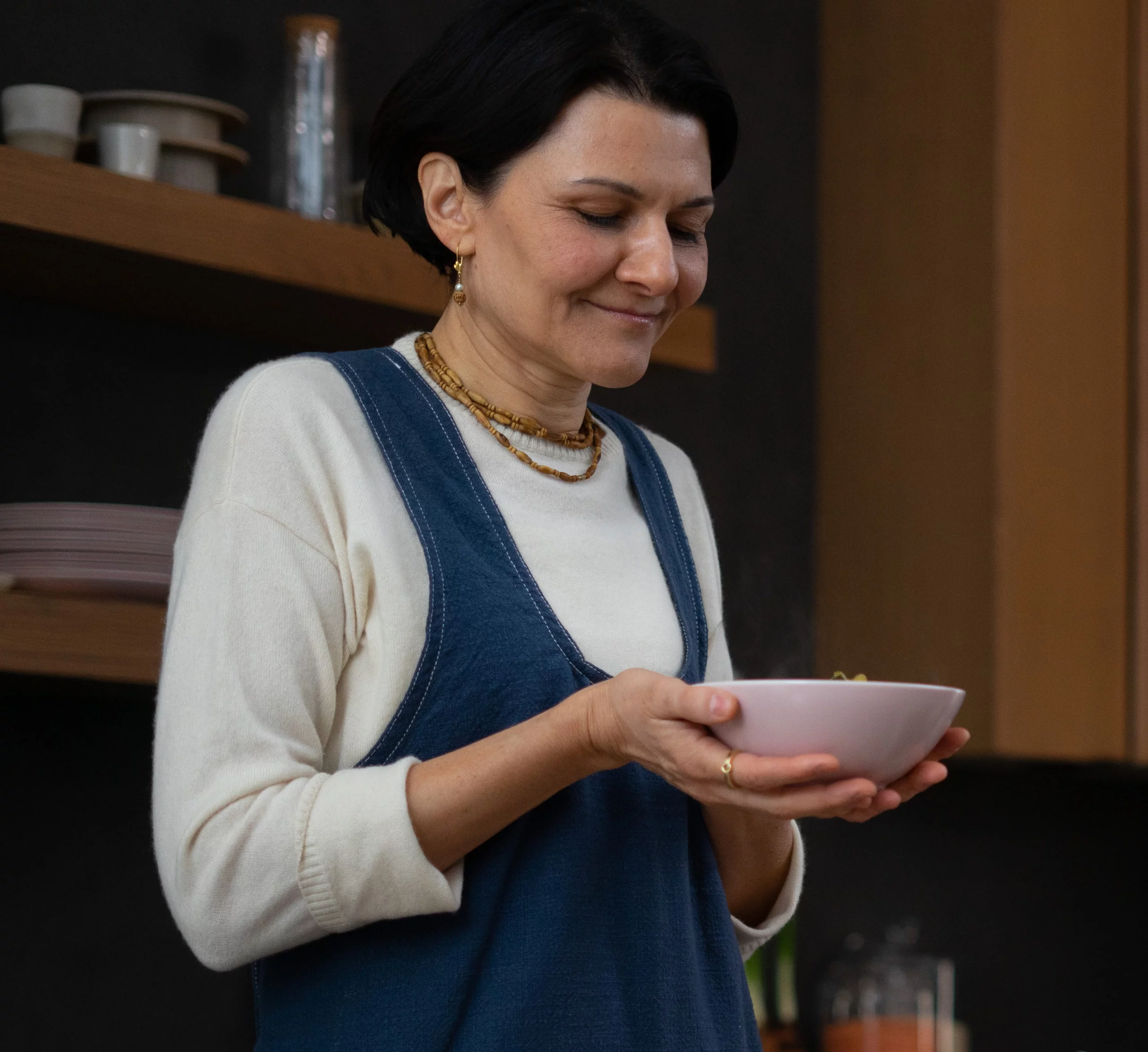
When was the last time you ate quietly, chewing slowly and truly savoring your food? In this article, Divya covers the importance of mindful eating and why poor eating habits can negatively affect your health.

Ayurvedic guidelines for staying healthy and balanced before, during and after traveling by plane.
